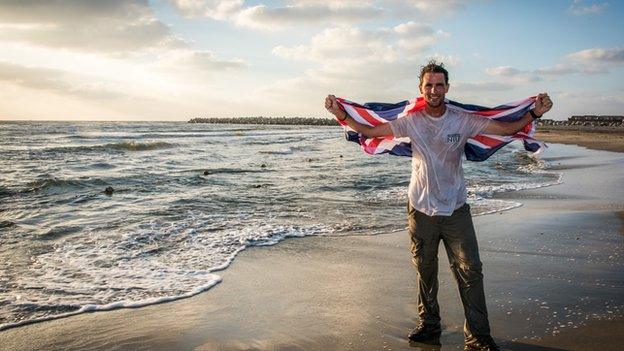'I was stalked by a polar bear'
- Published

Pip Stewart thought her partner had "lost the plot" when he suggested they cycle from Malaysia to London
Stalked by polar bears, held up at gunpoint and sleeping in fields strewn with unexploded mortar shells - just what inspires the new generation of self-styled modern explorers?
Intrepid adventurers have been making their mark for centuries, from Capt James Cook's mapping of Australia and New Zealand, to Sir Ranulph Fiennes making the first unaided crossing of the Antarctic.
But in the 21st Century, when so much of the world is a well-trodden path, the motivation of the so-called modern-day explorer goes beyond simply being the first to step on new land.
Most recently, Benedict Allen made headlines when he went missing while trying to reach a remote tribe in Papua New Guinea.
After becoming ill with a fever he became disorientated and was unable to call for help because he had purposely gone into the jungle without a phone.
Happily, the 57-year-old live to tell the tale, but his brush with danger is not altogether unique among the modern explorer community.
He and four others talk about the source of their wanderlust.

'The biggest dangers are often banal'
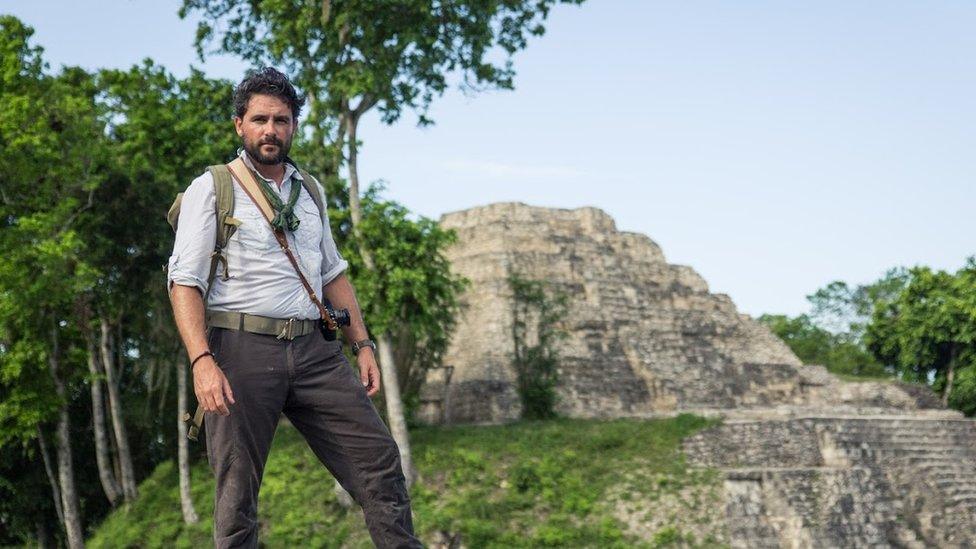
Levison Wood walked 1,800 miles from Mexico to Colombia in 2016
"I've been mugged, shot at and charged by elephants. But the biggest dangers are often more banal."
It's a point explorer Levison Wood is acutely aware of. In 2014, journalist Matthew Power died from heat stroke in Uganda, external whilst documenting Mr Wood's journey along the Nile.
Despite making several attempts to call for a helicopter, the remote nature of their location made it impossible to secure help.
"On a personal level I was questioning why it happened and also whether or not to carry on.
"I had some deep soul searching to do but decided to carry on as it was a way of honouring Matt's memory."
Mr Wood's first big expedition was aged 22, when he hitch-hiked from England to India.
But the 35-year-old, originally from Stoke in Staffordshire, says despite his daring lifestyle, he is not entirely comfortable with the term "explorer".
"It brings up images of pith helmets and planting flags in the land [but] for me, it's about travel - I want to look beyond the horizon.
"It's about sharing knowledge and learning new things - when you travel, you are an ambassador for your country."
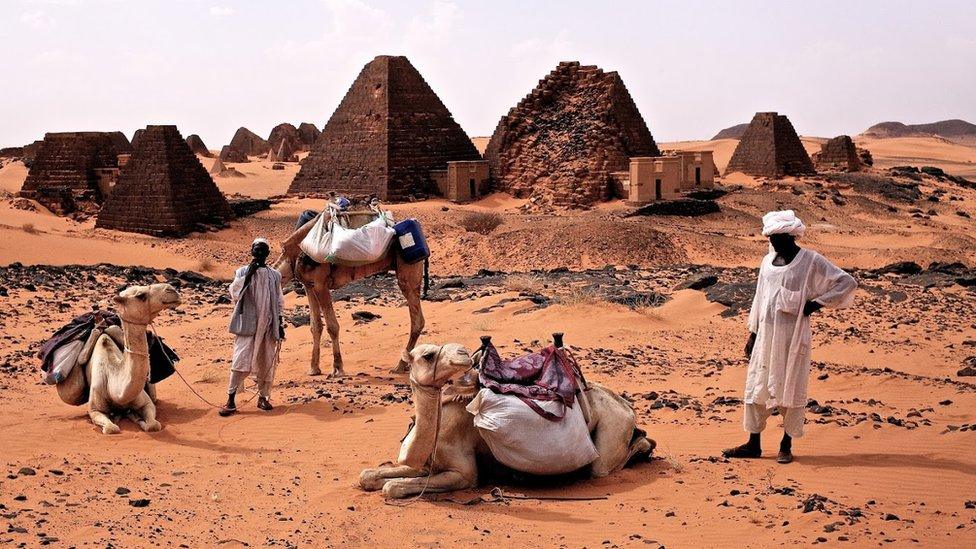
Mr Wood relied on local guides during his expedition along the Nile
He says travelling can also offer a different perspective about a place, citing a recent trip to Syria as a good example.
"I stayed in Damascus and you wouldn't know a war is going on. Millions [of people] live and get on with their lives and that is a forgotten story.
"I'm not saying people should go on holiday to Syria - I just show people the truth and let them make their minds up."
He admits that travelling to often risky locations is not easy on his family, particularly on his "poor mum".
"When I was 21, I hitchhiked across Iraq. She thought I'd been on holiday in Greece.
"I think she's given up worrying."

'A brilliant way to tell stories'
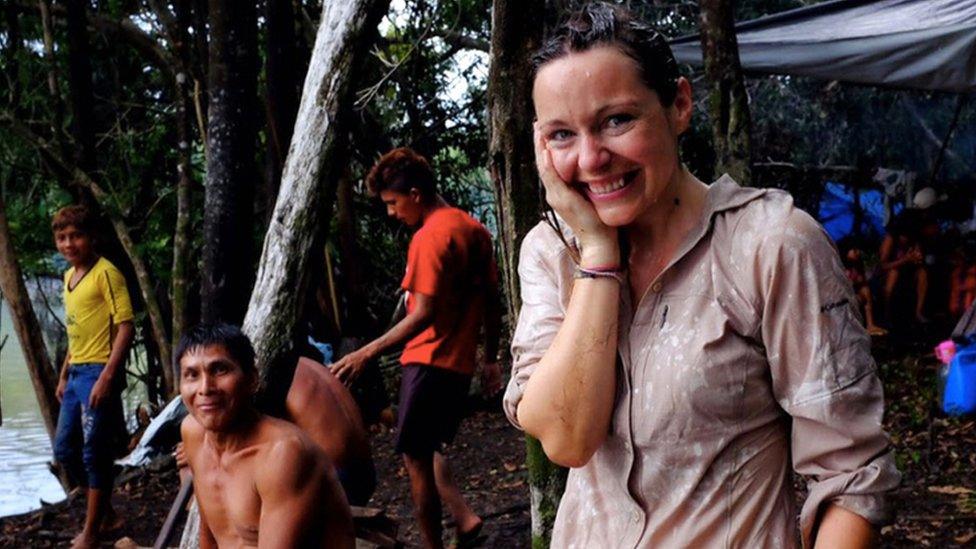
Pip Stewart travelled across Peru and Brazil in 2016, charting the effects of deforestation
Pip Stewart, 33, describes herself as an "accidental adventurer."
She was working as a journalist in Asia when in 2013, her partner persuaded her to cycle back to London with him.
Her first reaction was to wonder if he had "lost the plot", but 13 months later, she had covered 9,941 miles (16,000 km) and visited 26 countries.
"I found it to be a brilliant mechanism to tell stories because the people you meet and the connections you make are phenomenal."
Ms Stewart, from Cheltenham in Gloucestershire, now treats exploration as her full-time career.
"It's like any business, it takes a while to make any money out of it.
"Eventually you make a living through doing talks, for example at trade shows.
"The rise of social media has helped too. Brands will want to work with you and then I just focus on writing about my travels."
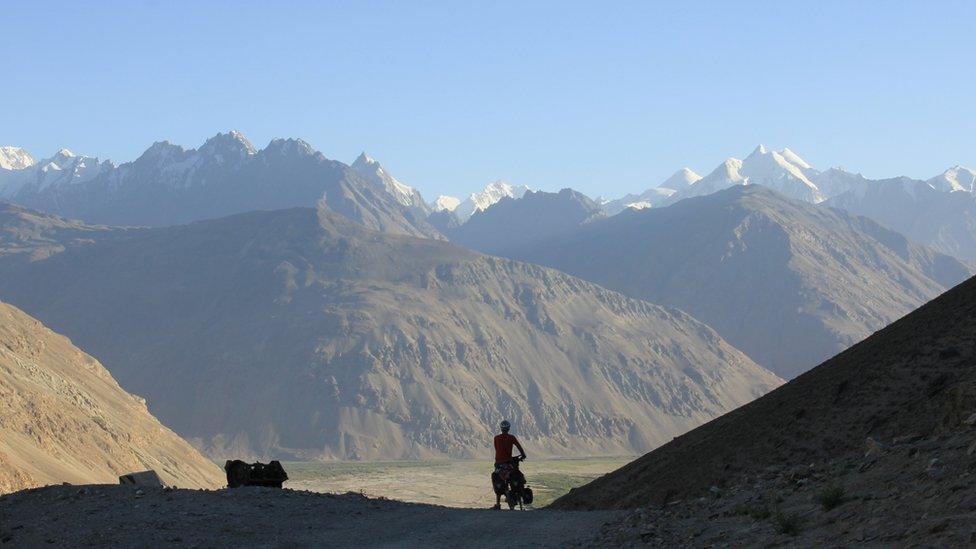
Ms Stewart narrowly avoided an unexploded mortar on the Pamir Highway
Though Ms Stewart enjoys the life-changing experiences of her adventures, she also appreciates the dangers involved.
"I was cycling in Tajikistan along the Wakhan Corridor. We found a place to camp at dusk.
"The next morning, I went to pull out the tent peg and realised my head had been 3cm from an unexploded mortar [shell].
"We reported it and they said a number of cows had recently been blown up after stepping on mortars.
"It was a lucky escape."

'A need to beat our chests'
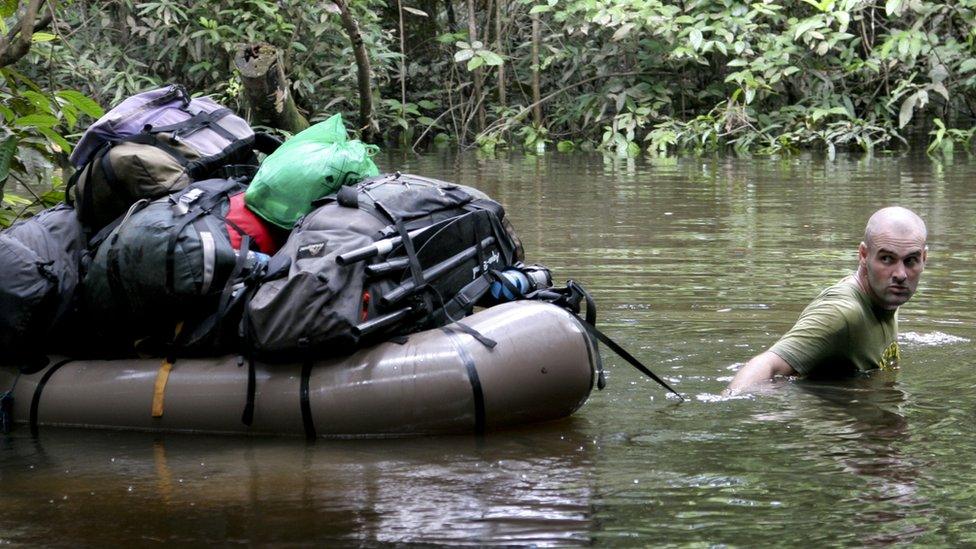
Ed Stafford spent 860 days walking the length of the Amazon River
Ed Stafford may have walked the length of the Amazon River, but these days he has to balance his adventures with being a "boring old dad".
"It's all well and good being young and taking risks, but the Amazon was reckless. I was largely uninsured and it was dangerous.
"My perspective has changed now I have a family."
The 42-year-old left Peterborough and headed to South America in 2010 after turning his back on careers in military and finance.
He says it gave him a platform to "achieve something and become more confident."
"I'm sure most explorers would say they are a bit insecure. We have a need to beat our chests."
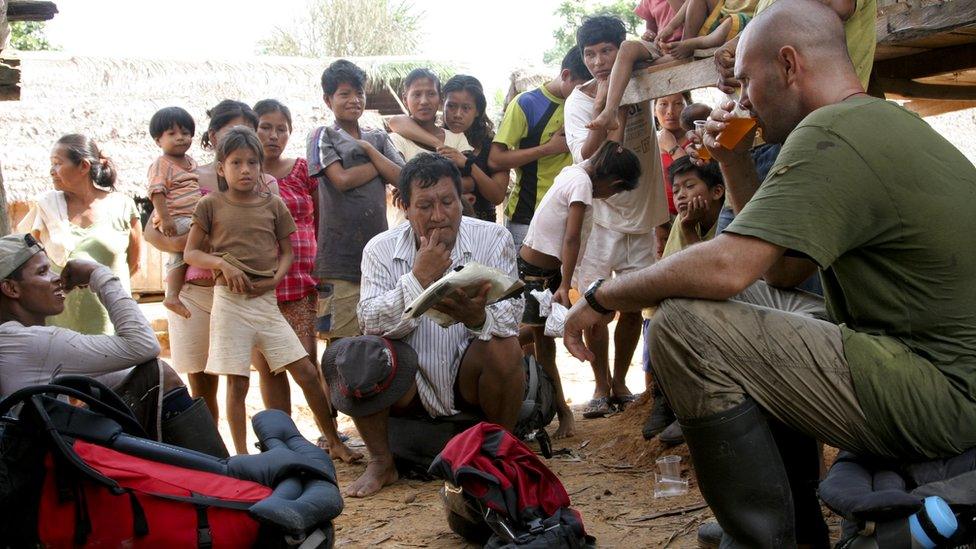
Ed Stafford encountered many remote communities on his trip
Mr Stafford's Amazon expedition took nearly two-and-a-half years and almost came to a halt when funds dried up.
"I ran out of money halfway through. I had to make YouTube videos with a PayPal link below them. I was crowdfunding before it had even been invented."
The explorer was also held up at arrow and gunpoint, arrested for drug smuggling and encountered alligators, electric eels and jaguars.
"I was also arrested for murder. A man had gone missing and I arrived in the village that day. The chief arrested me and I was locked up in a wooden hut and interrogated. It was farcical."
Mr Stafford was released after eight hours and continued with his journey.
But he has largely hung up his backpack to work for the Discovery Channel and bring up his eight-month-old son - the appropriately named Ranulph.

You might also be interested in:

'I made myself vulnerable'
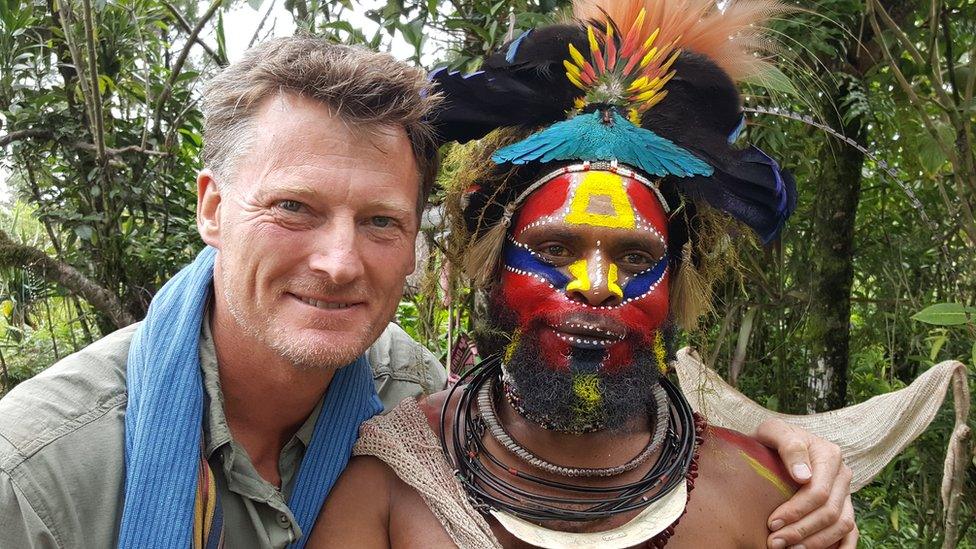
Benedict Allen integrates himself into indigenous tribes on his expeditions
Mr Allen's plight in November led to some criticism over his decision to travel without a phone or GPS device.
He says his predicament was borne out of his approach - he explores without modern technology, so he can integrate himself into indigenous communities.
"It's a reaction against traditional imperialist exploration, a very deliberate attempt to make myself vulnerable.
"I want people to look me in the eye and know I can't just make a phone call and get rescued.
"A lot of people made it sound like I just went walking off into the jungle. I have 30 years experience of this."
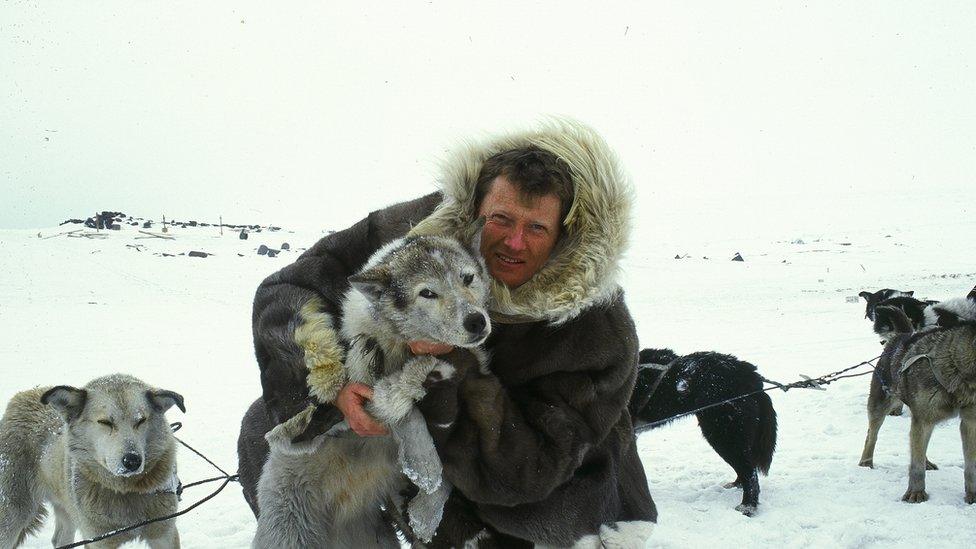
Benedict Allen has been exploring for 30 years, completing expeditions around the world
By his own admission, his approach can be dangerous - he contracted malaria five times and says he was was attacked by gold miners in the Amazon - it is "always outsiders that pose the biggest risk, never the indigenous people".
Despite the danger and criticism, Mr Allen isn't looking to retire.
"I'm fired up again and want to do more. I felt more alive out there and got the sparkle back in my eye."

'I'm no different to an ultra-marathon runner'
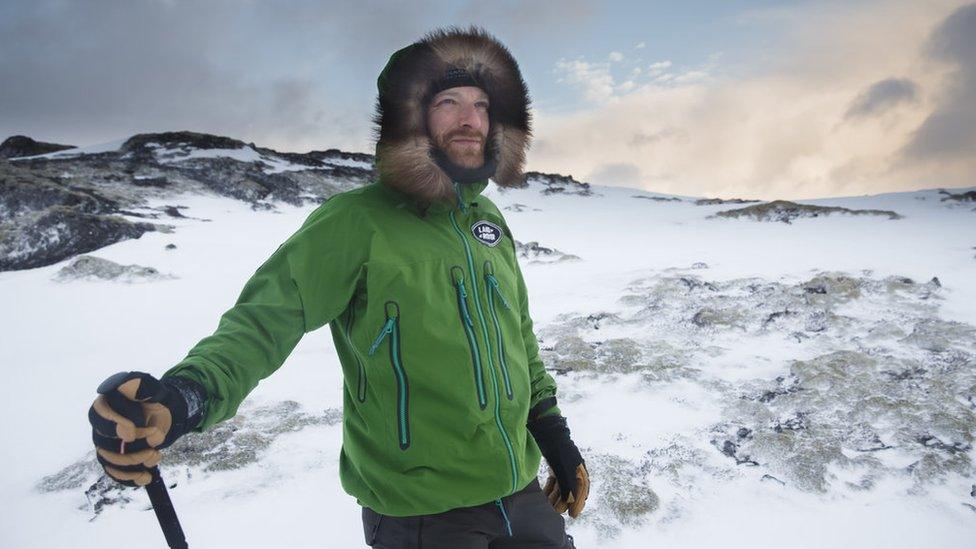
Ben Saunders recently attempted to cross Antarctica unassisted in memory of his friend
Ben Saunders has completed 13 polar expeditions over 17 years.
He has been stalked by polar bears, run out of food in Antarctica and abandoned his most recent expedition due to "nightmarish" conditions.
Danger aside, the 40-year-old from Plymouth says he is "more of an athlete than an explorer".
"To me, the appeal in these journeys is the challenge, both physical and mental.
"I'm no different to an Ironman or ultra-marathon runner."
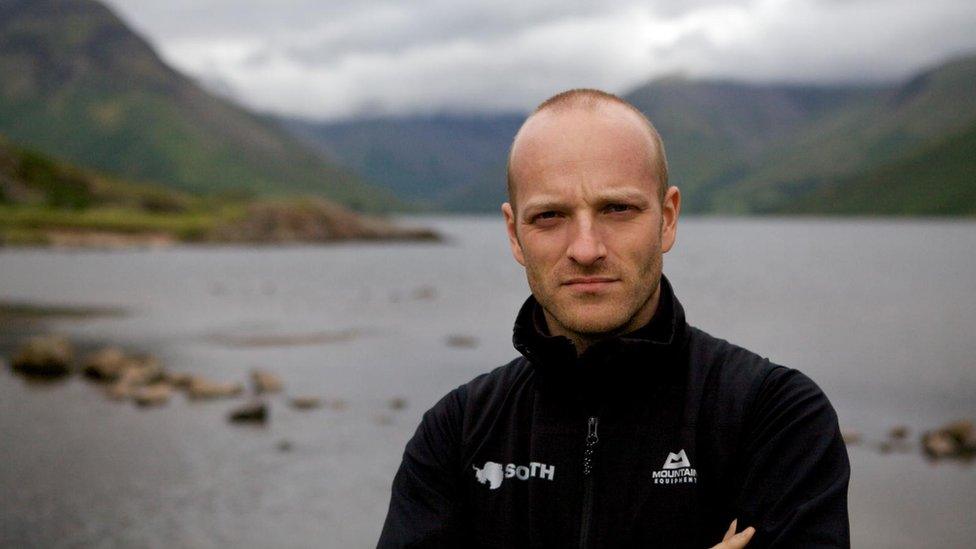
Ben Saunders made his first polar expedition in 2001
He says his trips are not just about challenging his limits; his most recent expedition was in honour of his friend Henry Worsley, who died while attempting to complete a solo crossing of Antarctica.
"I was much slower getting to the South Pole than anticipated, due to nightmarish weather.
"I wanted 20 days of food from the Pole to the finish line on the east coast, but I arrived with much less, so I didn't take a gamble and I abandoned the trip.
"I have a different attitude to risk nowadays."
And the run-in with polar bears? That came during his first major expedition in 2001.
"It was only the second morning and I spotted a polar bear following us. We tried to scare it away with a Russian shotgun but it jammed five times before we could fire a shot.
"It was probably about 30 metres or a few seconds' sprint away. That was my first big fright. We had to make noise and convince it we weren't seals."
- Published21 November 2017
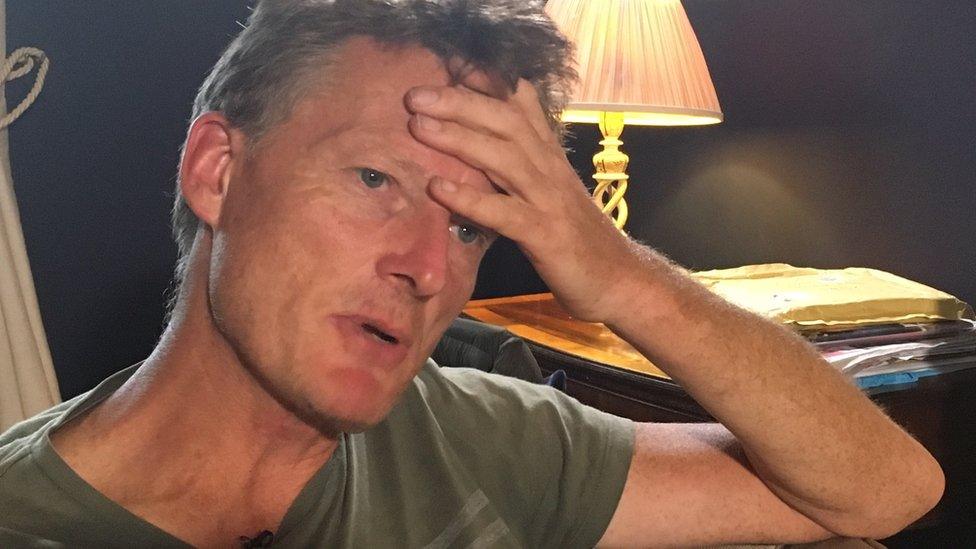
- Published11 August 2010
- Published5 September 2014
